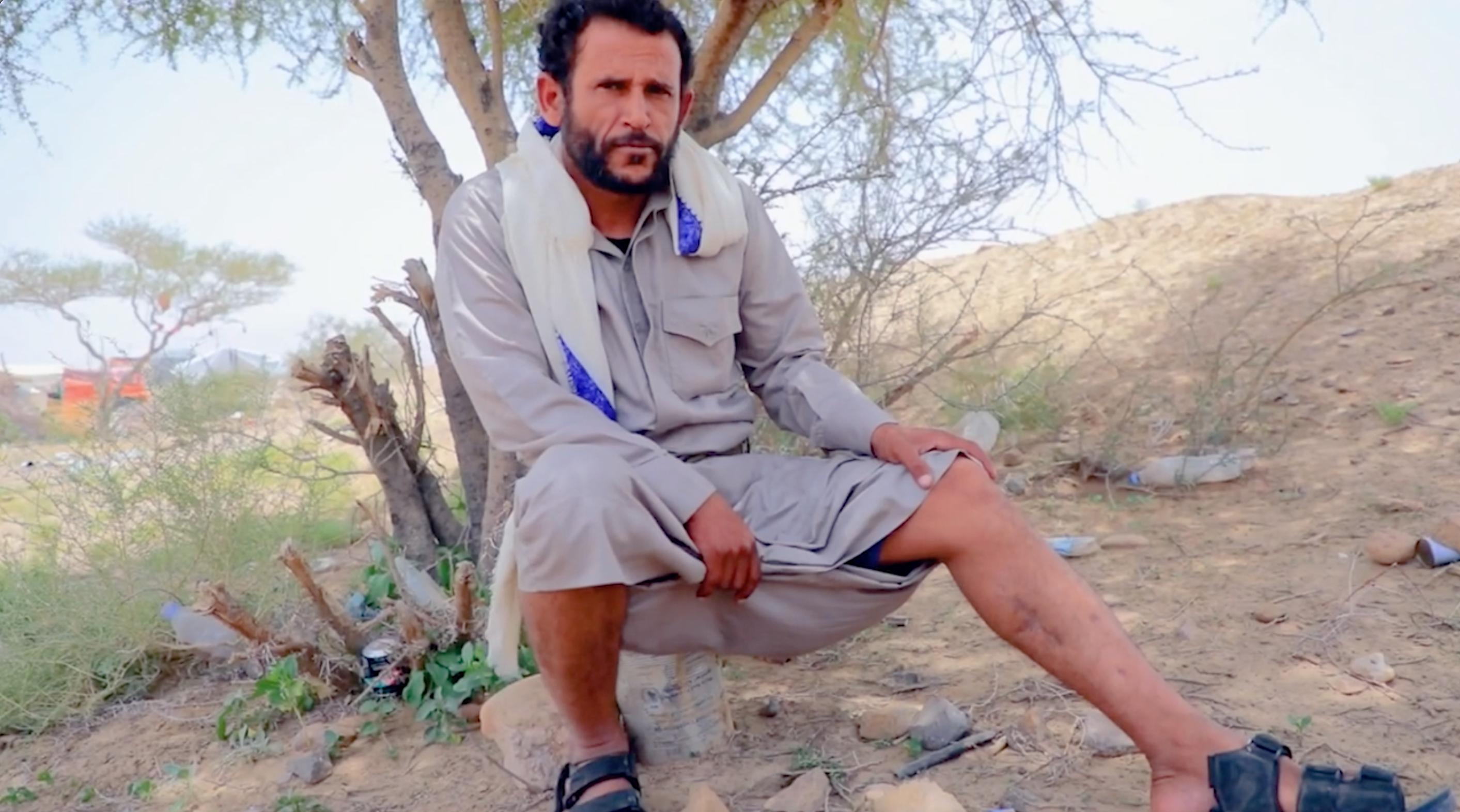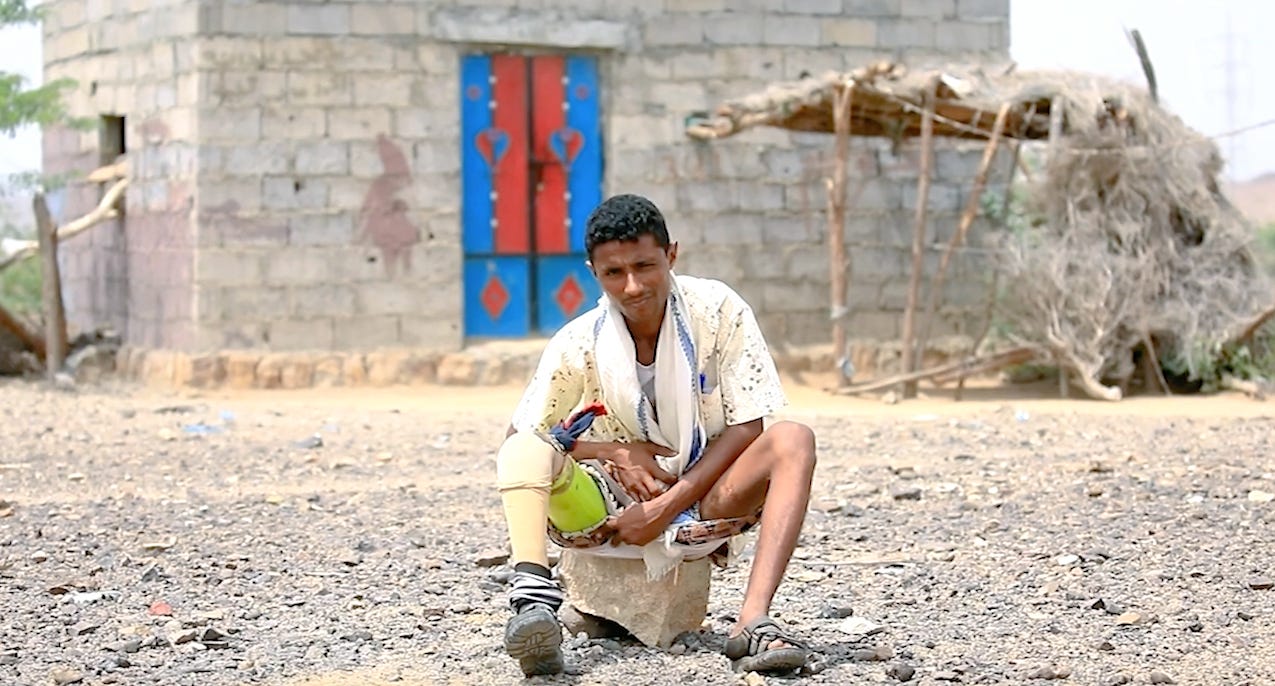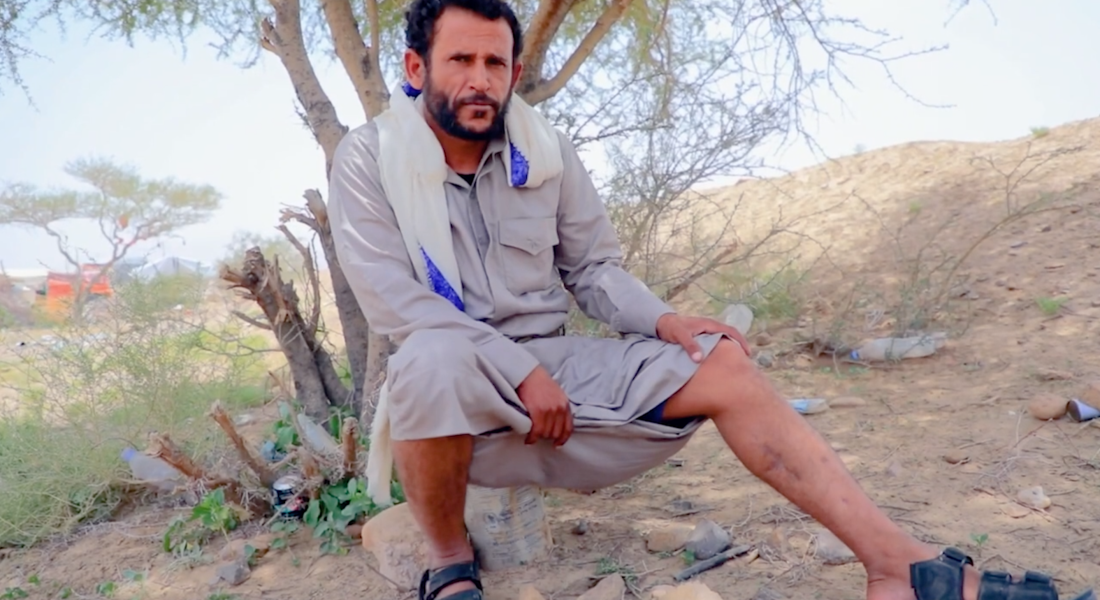
Yahya Ali Salem is a Yemeni farmer. He used to grow grains, melons, sesame and fodder for livestock.
Then he was displaced by the conflict. When his area was liberated, he was finally able to return home, to his land. What he found was an area littered with landmines.
Since the conflict between Yemen’s pro-government forces and Houthi militias escalated in 2014, liberated strategic areas have been left cluttered with anti-personnel mines and anti-tank mines, along with unexploded explosive remnants of war (ERW).
“Since we came back [from displacement], we couldn’t plant and we didn’t know where to walk and where to plant until part of the farm had been cleared,” Ali Salem, a father who relied on subsistence-level farming, explained.

This is unfortunately the reality for many farmers across Yemen, a country where agriculture is the lifeblood of the economy and its culture. Indeed, before the conflict, the sector directly provided livelihoods for at least 73.5 percent of Yemeni households, according to the Yemeni government.
“Planting mines causes danger to humans, livestock and everything that moves on the ground, and there have been many accidents that have claimed human lives and animals, May God help us,” Ali Salem added.
While the presence of landmines on farmland not only denies farmers access to their land, it also has a dramatic effect on farmers’ physical ability to tend to their land once they are able to return.
Father of four, Mansour Ali Mastour, said he was happy when his area was liberated and the frontline shifted.
“We were farmers, when we faced the problems [due to the violence] we were forced to leave our region. Now this region is safe, everything is fine.”
One morning, he left his home to take care of his affairs and was surprised by a landmine explosion. He fell to the floor.
“I have four children, I used to take care of them and work hard in the farm for them. Now, I am disabled. There is no problem if you can’t move for a day or two.. But it is very hard if you are disabled for life.”
The farmer, who lost both his legs and whose arm was injured in the explosion, still lives at home where his family tends to him, and spends his days on a makeshift bed.
“When they plant the mines in your farm, what are they targeting? Surely they target the households, so when you go out to do your things like herding the sheep, landmines will explode under you,” Ali Mastour said.


Mohammad Naji hasn’t set foot on his farm in over two years. The last time he walked on his land, a landmine exploded. He was severely injured, and forced in displacement. He lost his crops and livelihood.
“I came to work in our farm near the riverbed. I was walking through it when a landmine exploded under me. This is all because of the Houthis; they plant landmines in valleys and roads, and then the torrents carry the landmines to the farms, roads and everywhere,” Naji explained.
“After the accident, I have been like this for two years, unable to cultivate my land.”

Prior to the conflict, more than 70 per cent of the population relied on income from the sector. With 257,000 hectares of cropland exhibiting signs of distress, approximately equivalent to the total cropland in Jordan or Lebanon, Yemen’s food insecurity is growing at a rapid pace.
Abdou Hamdi’s life was halted by a landmine.
“I was going to herd my sheep when a landmine exploded under me. My right leg was injured above my knee,” Hamdi said.
“I can’t live a normal life. I became a disabled. I was going to my work and now I am just sitting. I have no source of living, I can’t work, I can’t do anything.”


In every of these cases, Project Masam was called in to investigate the reports of potential minefields, and of accidents due to landmine explosions.
Member of Masam’s Demining Team 24, Ahmed Hussein Ahmed, explained how his team was told to head to Al-Saidia Road in Hays Directorate in Hodaydah Governorate, after civilians complained about explosions.
“We have been working in this field for two days, and we discovered about 20 anti-tank mines, and work is still ongoing, as there is a density of mines next to the roads,” the deminer explained.

“Our first goal is to secure the roads leading to villages and farms so that civilians can return to their villages from which they were displaced four years ago.”
In Al-Khawkhah Directorate, Masam’s Team 26 was also called after civilians reported a minefield on a farm in Mahout Subai’ village.
“We cleared these mines that were planted by the Houthi group next to these farms and next to civilian’s pastures,” Sami Said, Leader of Team 26 said.

The deminers’ goal is to ensure all areas are cleared and free from landmines, but the evolving landscape of the proliferation and indiscriminate use of landmines — both anti-personnel and anti-tank — is stretching teams thin.
“Work is continuing at a high rate, as these areas are all agricultural areas, and the displaced residents are being returned to their homes and the roads leading to the farms are being cleared,” Ali Hadi Rashid, Leader of Team 27 also operating in Hays area, Hodaydah Governorate.

All three farmers interviewed said that no accidents had happened after the arrival of Masam’s teams.
“Masam teams come on a continuous basis to investigate the presence of mines beside conducting continuous land surveys. When any explosion occurs whether triggered by people or livestock, Masam teams start surveying the entire place,” Ali Salem said.
He added: “Masam teams came, they examined the land and cleared mines from part of it, which made us able to plant again. Now, the situation is better, and we hope that the harvest will return as it was,”
For Yemen to rebuild and for its largest sector to prosper again, every landmine intentionally planted on roads, schools and agricultural farms must be removed. The survival of communities damaged during the conflict depends on it.
This article was first published by Medium.

